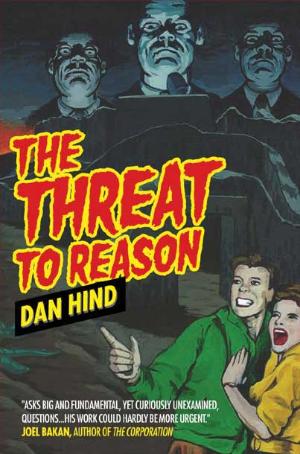We’ve heard a good deal about the Enlightenment recently: we’ve heard, for example, that Enlightenment values – having to do with the self-responsible use of reason and the rejection of traditional forms of authority – are under threat from obscurantisms and fanaticisms of various kinds; but we’ve also heard that in fact there was no such thing as the Enlightenment at all, and that consequently we should generally be suspicious of people who speak as if there were.
 This latter claim comes in stronger and weaker forms. It’s one thing to think that “the Enlightenment” might have limited use as a historical term; but quite another actually to reject the values associated with it (the values of free inquiry, openness, toleration and so on). One of the problems with Dan Hind’s breezy little squib The Threat to Reason is that it’s often hard to tell which kind of Enlightenment-sceptic he is (or, indeed, whether he’s one at all, for all his impatience with contemporary Enlightenment-talk).
This latter claim comes in stronger and weaker forms. It’s one thing to think that “the Enlightenment” might have limited use as a historical term; but quite another actually to reject the values associated with it (the values of free inquiry, openness, toleration and so on). One of the problems with Dan Hind’s breezy little squib The Threat to Reason is that it’s often hard to tell which kind of Enlightenment-sceptic he is (or, indeed, whether he’s one at all, for all his impatience with contemporary Enlightenment-talk).
Now, there are certainly good reasons, which Hind gestures towards, for believing that the use of the term “Enlightenment” as a catch-all category unhelpfully obscures some important historical differences – between, say, Condorcet and Kant, or between Kant and Hume. After all, Kant’s commitment to the Enlightenment dictum that one have the courage to use one’s own understanding didn’t stop him rejecting the thoroughgoing naturalism of the French Enlightenment, on the grounds that it left no room for freedom and so for morality. And the same is true of the Enlightenment camp today: in his recent and largely approving review of Richard Dawkins’ book The God Delusion, the philosopher Thomas Nagel argued that accepting Dawkins’ anti-religious case doesn’t mean you have to buy into the reductionist world-view of which it is part.
However, Hind is not really interested in teasing out such distinctions. He is more concerned with what he sees as an ideological abuse of the idea of Enlightenment, particularly in connection with the so-called “War on Terror”. When western liberals present Islamist terrorism as a threat to enlightened values, Hind argues, they are in fact just providing rhetorical cover for the iniquities of US foreign policy. The same applies, in his view, to those who think that the main threat to science (the great achievement of the Enlightenment, after all) comes from quack medicine and radical environmentalism rather than from big corporations which “distort the research agenda” in order to protect their margins.
The problem with this kind of analysis is that it criticises the dupes of military or corporate might on the basis of principles (justice, say) that, by their own lights, can’t be anything but the ideological residue of power politics. But the “betrayal of the Enlightenment” that Hind denounces wouldn’t be real if its principles themselves weren’t real. And in fact his own positive political vision (set out in his final chapter) turns out to be a rather conventional liberal-democratic one, centred, in explicit deference to Kant’s famous essay “What is Enlightenment?”, on the vigorous protection of the public sphere.
Jonathan Derbyshire is reviews editor of the Philosopher's Magazine. The Threat to Reason is published by Verso.

